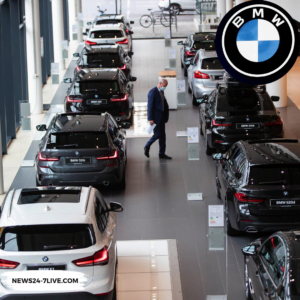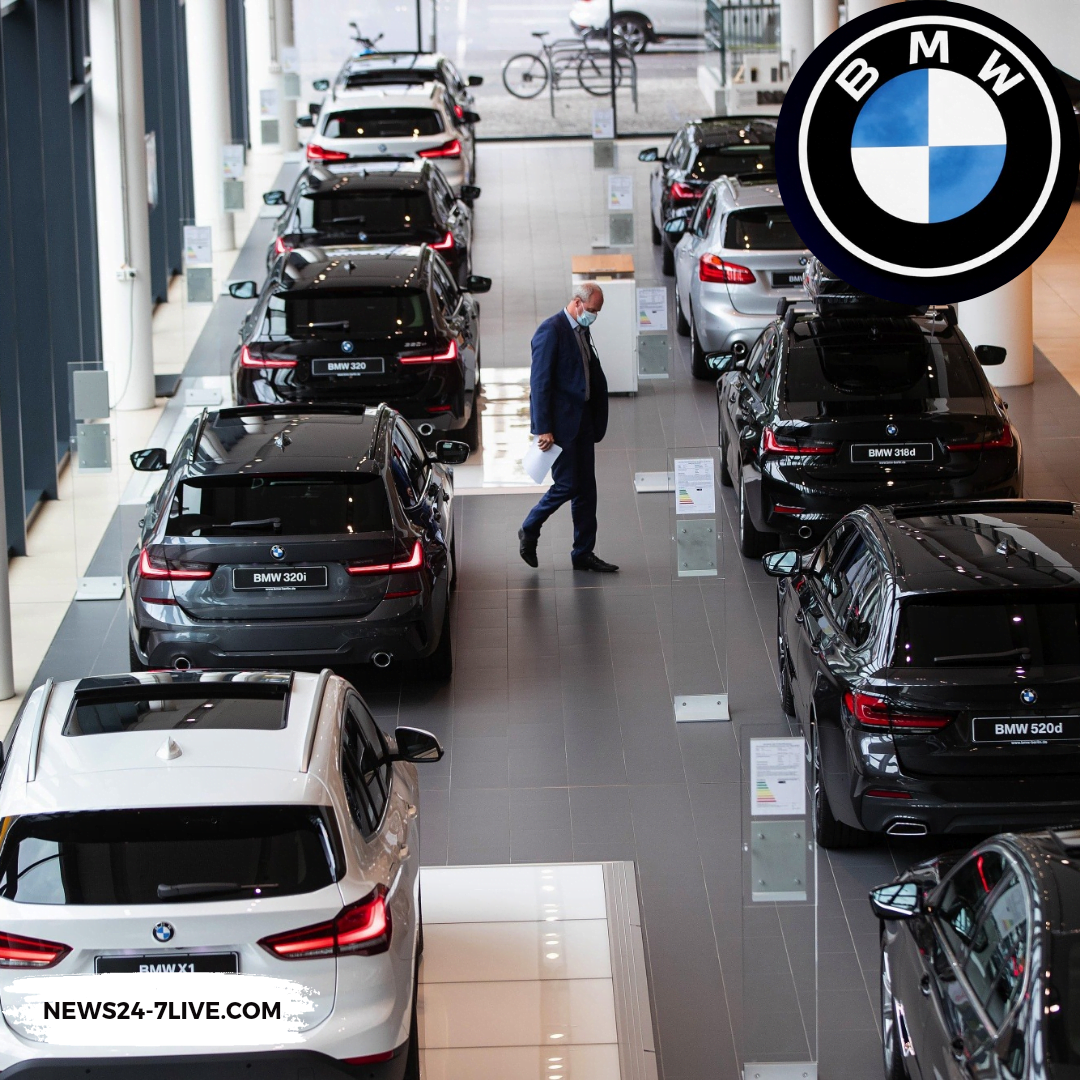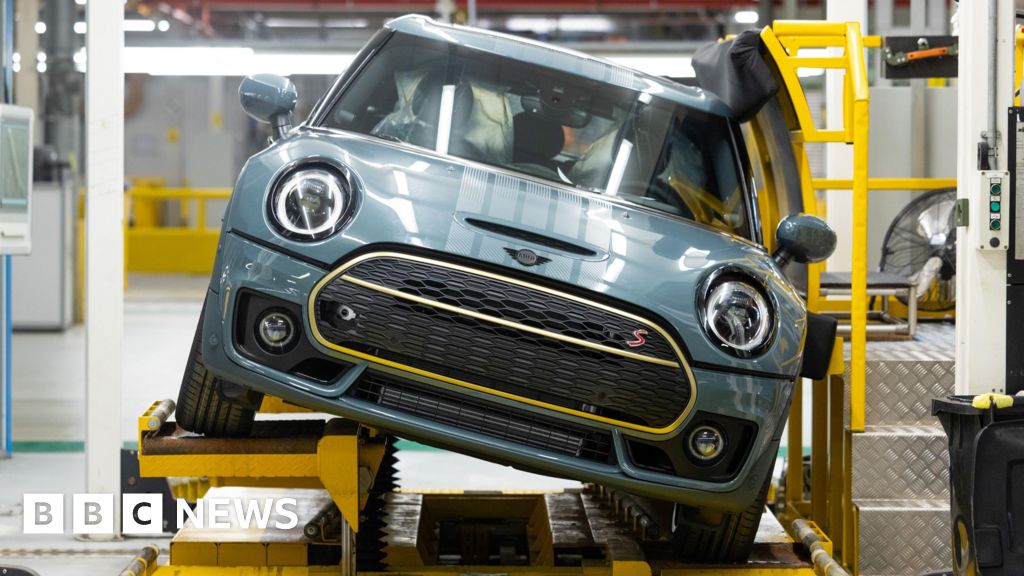US congressional report has revealed that major automakers BMW, Jaguar Land Rover (JLR), and Volkswagen (VW) have been using parts made by a Chinese company sanctioned under the 2021 Uyghur Forced Labor Prevention Act (UFLPA). The company, Sichuan Jingweida Technology Group (JWD) is alleged to have links to forced labor involving Uyghur minorities in China’s Xinjiang region.

Also Read: Nio Launches Onvo L60 to Challenge Tesla’s Model Y
The report led by Senate Finance Committee Chairman Ron Wyden, disclosed that at least 8,000 BMW Mini Cooper cars were imported into the US containing components from JWD. BMW continued to use these parts until about April 2024.
JLR imported spare parts that included components from JWD even after the company was added to the banned list.
The report highlighted that JLR has since identified and is destroying any remaining stock worldwide that includes these components.
Thousands of VW vehicles including Porsches and Bentleys were held by authorities due to containing a component that breached US anti-forced labor laws. VW voluntarily informed customs officials about this issue.
The Uyghur Forced Labor Prevention Act (UFLPA) passed in 2021, to prevent the importation of goods from Xinjiang believed to be made under forced labor conditions. JWD was added to the UFLPA Entity List in December 2023.
BMW stated it has taken steps to halt the importation of affected products and will conduct a service action involving customer and dealer notifications for affected vehicles.
JLR issued a statement indicating that the subcomponent in question was used in a previous generation of technology and is not in current vehicles for sale.
Once notified of JWD’s inclusion on the sanctions list, JLR stopped the shipment of the affected parts and quarantined existing inventory for destruction.
VW confirmed that a shipment of its vehicles to the US included parts from the blacklisted supplier. VW had disclosed this to US border authorities.
The report also pointed out the involvement of two US-based contractors, California-based Bourns Inc. and Michigan-based Lear Corp.
These companies sourced components from JWD and supplied them to BMW and JLR. Lear Corp. sent letters to BMW, JLR, and VW in January, notifying them of the banned components and stated that it was working to remanufacture the affected parts.
Senate Finance Committee Chairman Ron Wyden criticized the automakers for their inadequate examination of supply chains.
He addressed that automakers’ self-policing efforts are insufficient and urged the US Customs and Border Protection agency to enhance enforcement and crack down on companies using forced labor.
“Automakers are sticking their heads in the sand and then swearing they cannot find any forced labor in their supply chains,” said Senator Wyden.
Also Read: Aston Martin Vantage Review, Price and Specifications
China has been accused of detaining over one million Uyghurs and other Muslim minorities in Xinjiang in what many international observers have described as acts of genocide.
Beijing denies these allegations, stating its efforts aim at countering terrorism and boosting job skills through employment programs. Human rights advocates argue that participation in these programs is often involuntary.
The UFLPA, enacted in 2021 bans the import of goods made with forced labor from Xinjiang unless companies can prove otherwise.
BMW imported over 8,000 Mini vehicles containing the banned part even after the supplier was added to a U.S. government list of companies involved in forced labor.
Jaguar Land Rover continued importing the components until being informed by the supplier in April, claiming lack of awareness due to miscommunication within its North American subsidiary.
A LAN transformer was not directly purchased from Sichuan Jingweida Technology Group (JWD), the flagged Chinese manufacturer, but was part of an electronic unit acquired from Lear Corporation, an automotive electrical systems supplier.
Lear Corporation, upon learning of JWD’s forced labor involvement notified its customers and expedited the resourcing of components from another supplier.
Reports from various sources including the Australian Strategic Policy Institute and Sheffield Hallam University, linked JWD to government-sponsored labor transfer programs in Xinjiang concerns about coerced labor practices.
Volkswagen voluntarily disclosed the presence of the banned components in its vehicles to U.S. customs agents and arranged for their replacement before entry into the country.
BMW acknowledged the issue and ceased imports of the components, and committed to replacing them in affected vehicles.
Jaguar Land Rover halted imports of the banned components upon learning of their presence in its supply chain.
The Biden administration’s addition of 26 Chinese textile companies to the Uyghur Forced Labor Prevention Act’s entity list shows efforts to address forced labor concerns across various industries including automotive.
Also Read: 2025 Mercedes-AMG CLE 53 Cabriolet Revealed






















